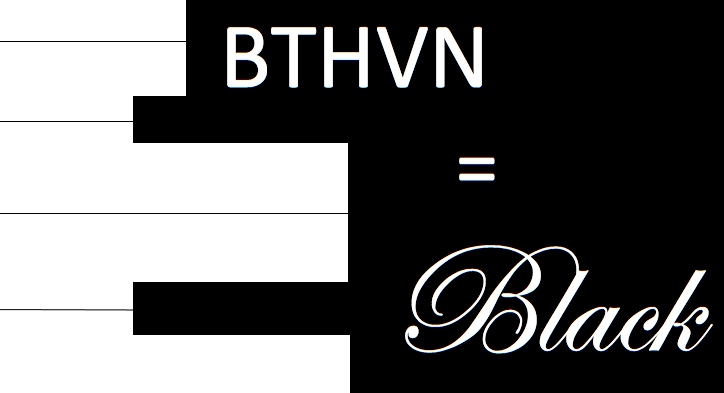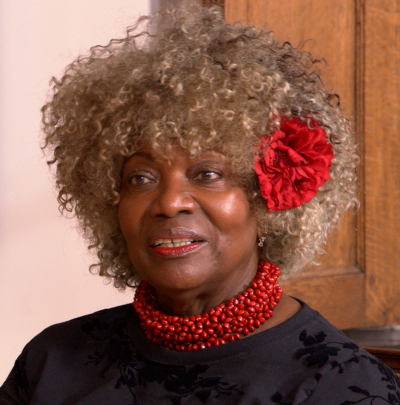
Beethoven is Black
Once there were blacks wanting to be white.
Now there are whites wanting to be black.
It’s the same secret.
‘Beethoven Was One-Sixteenth Black’
Nadine Gordimer (2007)
Classical music is inextricably linked to Western imperialism and white supremacy. How do musicians of color relate to classical music? How do we decolonize classical music?
With Beethoven = Black, Museum Geelvinck addresses the discourse on classical music from the perspective of diversity and inclusion.

Ludwig van Beethoven, by Joseph Willibord Mähler (1778-1860), Vienna, 1815 (coll. Wien Museum)
Beethoven WAS Black?
In 1907, the Afro-English composer Samuel Coleridge-Taylor (1875-1912) was the first to propose the idea, that Beethoven also must have had African ancestors. Since then, this theory has surfaced remarkably often. Is this “black-washing”?.
With ‘Beethoven is Black’, we pinpoint the ambiguity from the point of view of diversity and inclusion, that is inherent to classical music. Can we see classical music as a universal creative value, which is separate from its historical context?
In particular, we focus on Ludwig van Beethoven, the man and his work in the perspective of his time, as well as his relevance for society today. In 2020-2021, his 250th birthday is being celebrated. Beethoven was not only a revolutionary creative music innovator. He was also progressively engaged at a time when Europe was torn apart by revolutions and civil wars. To this day, Beethoven and his iconic music symbolize democratic freedom and social justice. How do musicians of color feel about this?
Museum Geelvinck strives to give its audience inspiring perspectives, which challenge mainstream views. Should we rethink our vision on classical music? How do we make concert venues, festivals, education, and vocational training for classical music more welcoming to people of color?
Our goal is to contribute to increasing diversity and inclusion in the museum and music sectors.
PANEL Session ON FRIDAY 4 JUNE 2021
Moderated by Curaçao-Dutch television anchor Noraly Beyer, musicians of color and colleagues from the world of classical and early music were invited to reflect on classical music in its historical context and share their experiences, home and abroad. The panel dived into questions such as:
- Is classical music a universal cultural value, or does it represent Western imperialism and white supremacy. Or should the approach be multi-layered and complex. How do musicians of color relate to classical music? Can we decolonize classical music?
- Which experiences, that structurally hindered their education and career, have musicians of color encountered in the Netherlands? Which elusive insights offer comparisons with other countries? Which examples for improvement and best practices can be suggested.
Keynote speaker was Chi-chi Nwanoku OBE, initiator of Europe’s first majority Black & Minority Ethnic orchestra, Chineke!.
The panel members included Patricia Ann Neely (chair EMA IDEA Task Force), Luke Welch, Brandon Keith Brown, Yi-heng Yang, Ronald Snijders, Orville Breeveld and James Oesi.
The event was real-time live streamed. You can watch the recorded Zoom on YouTube. Please use the button hereunder:
A compact version with the highlights of the panel conversation will be published on this website shortly.
We regret, that due to the Covid-regulations, there was no possibility to attend the live recoding in the Cultural Education Center (CEC) in Amsterdam-Bijlmermeer.
For further reading, we kindly suggest the articles and interviews on the Theme Info page. Please also see the highlights video of the interviews, which Gerda Havertong made with the musicians.

WEEKLY VIDEO-PODCAST series
Watch and listen to our video-podcast series. During eight episodes of the series, musicians of color perform work by, among others, Beethoven and several composers of color. Gerda Havertong interviews the musicians about their views on the topics mentioned. On our website, we will highlight composers of color from the 18th and 19th centuries in the context of their time.
You will hear works by composers of color by Joseph Bologne, Chevalier de Saint-Georges (1745-1799), José White Lafitte (1836-1918), Jan Gerard Palm (1831-1906), Joseph Sickman Corsen (1853-1911), Wim G. Statius Muller (1930-2019), Ronald Snijders and others.
The works by Beethoven include ‘Egmont’ (Op. 84, 1810), ‘Eroica’ (Op. 55, arr. Czerny for quatre-mains, 1836) and the ‘Kreuzer Sonata’ (Op. 47), which he wrote for the Afro-Polish violinist George Bridgetower (1778-1860) and performed with him on May 24, 1803 in Vienna. During the panel conversation, Chi-chi Nwanoku suggested to rename the ‘Kreuzer Sonata’ into “Bridgetower Sonata’, the name Beethoven originally coined for this piece.
The performances are conducted on authentic period fortepianos. Museum Geelvinck is keeper of the largest Dutch collection of stringed keyboard instruments from the 18th and 19th centuries (a collection, which encompasses, among others, over 200 square and fortepianos).
Performers are (in no particular order), Ronald Snijders, James Oesi, Shuann Chai, Delbert Bernabela, Meneka Senn, Mirelys Morgan Verdecia, Shunske Sato, Alexander Kraft van Ermel, Naomi Tamura, Maripepa Contreras and Yukiko Hasegawa, as well as Richard Egarr, Olga Pashchenko, Alexandra Nepomnyashaya, Elizabeth Fadel, Artem Belugorov, Tobias Borsboom and Simon Mulder.
The recordings of the concert and the interviews took place in the past months during the Covid-lockdown. These are now bundled in the eight episodes of the video-podcast ‘Beethoven is Black’.
Once the Covid-regulations will be more relaxed, you will be able to visit again our museum venues and experience our historic pianos. For more information about our museum, visit www.geelvinck.nl

Highlights of the interviews by Gerda Havertong with the musicians









